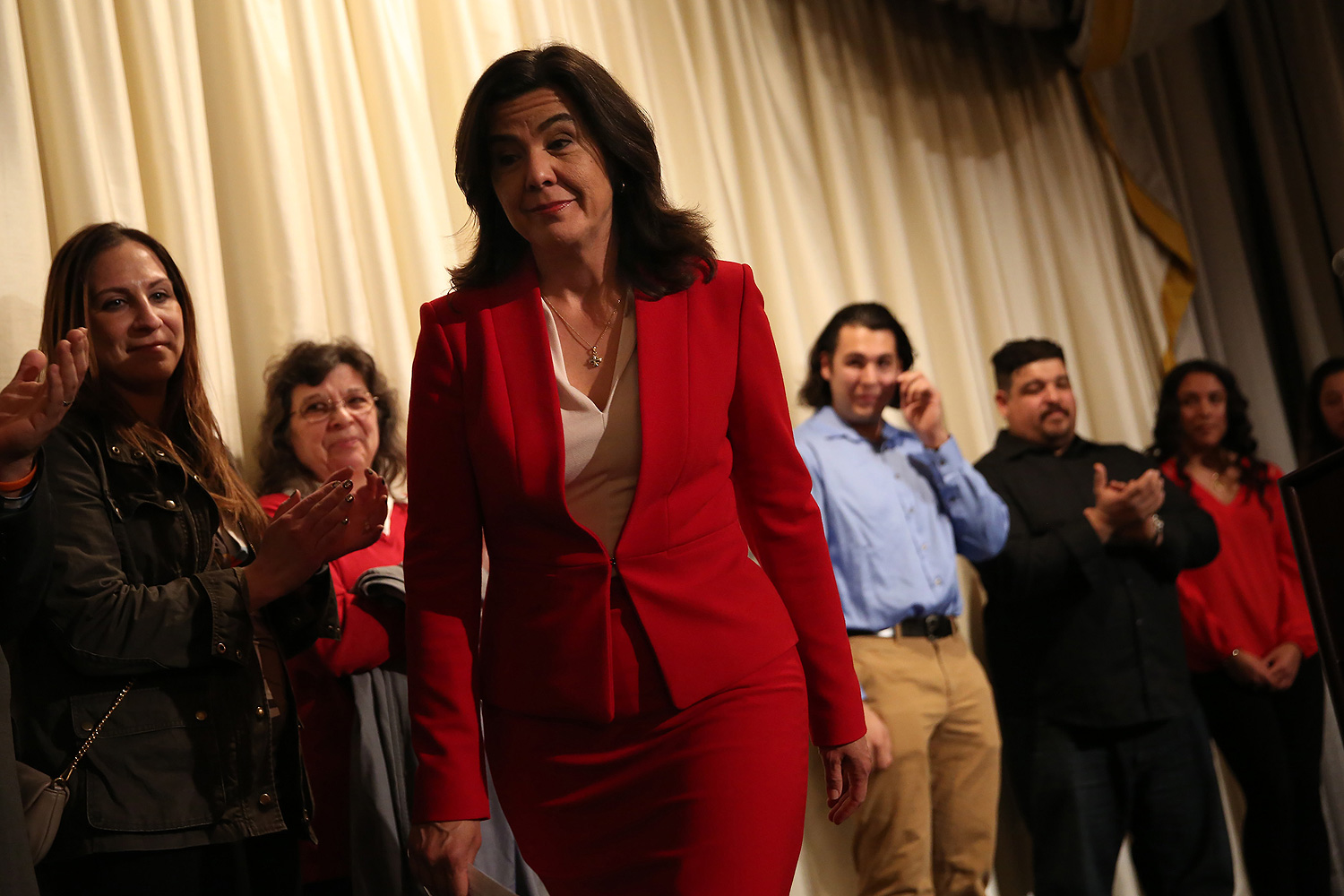Winner: Chicago’s activist community
I had a hunch Kim Foxx would win last night, but I never would have guessed that she would win by 30 points. Activists weren't the only coalition to turn on Alvarez; the Cook County Democrats also got behind Foxx, who received endorsements from the Tribune, Sun-Times, and Daily Herald. But defeating an incumbent, especially one who, despite her travails, was still leading in the polls shortly before the election, can be like turning around a battleship. And they turned it around on a dime.
National media outlets have already lumped Foxx's victory into the Black Lives Matter movement, but as Darryl Holliday detailed in his piece on Chicago's black activist coalitions, they really rose in parallel. The shooting of Laquan McDonald catalyzed the largest protests, but two and a half years before that, it was the shooting of Rekia Boyd that led to protests that culminated in criminal charges against the officer who shot her.
And, of course, the activist community includes the independent journalists Jamie Kalven (the first journalist to call attention to the dash-cam video and find a witness) and Brandon Smith (who successfully pursued the video through the Freedom of Information Act).
But that's not even all. On March 4, the Tribune's Eric Zorn—who flagged Alvarez's 60 Minutes interview in 2012 in what was arguably an early tipping point—rounded up a devastating indictment of Alvarez as state's attorney, drawing from his own years of analysis and reporting on her tenure.
By contrast, Timothy McGinty, the prosecutor in the Tamir Rice case in Cleveland, lost by a mere 10 points last night. The 30-point gap in the Foxx-Alvarez matchup only comes from the kind of broad, ongoing pressure that Chicago is capable of sustaining right now.
Winner: Toni Preckwinkle
My colleagues named her the most powerful person in Chicago in our March issue: "The party’s shotgun endorsement of Kim Foxx, another one of Preckwinkle’s former top aides, for state’s attorney? Engineered by Preckwinkle, of course. If Foxx wins the primary on March 15, it will be impossible to deny that Preckwinkle is the biggest political force in town." Last night, Carol Marin, who's forgotten more about Chicago politics than I'll ever know, concurred.
Loser: Bruce Rauner
Ken Dunkin, the Democratic representative who's pointedly been aligning with the governor and against Michael Madigan, got beaten by 35 points in the state House District 5 primary. In what WBEZ's Dan Weissman called "a political war for the state's future," Dunkin got $3.4 million, almost twice as much as Juliana Stratton in the most expensive legislative race in state history, and lost very, very badly.
But for all the money lavished on the race, it's still just 26,000 votes in a Democratic primary in which the incumbent Democrat had loudly aligned with an unpopular Republican governor, and then managed to pull the president of the United States into campaigning against him by cutting a cynically misleading ad suggesting Obama was in Dunkin's corner.
Perhaps a bigger loss for the governor was one in which Rauner and his allies tried to knock off Sam McCann, a Republican senator from Plainfield who bucked him with a pro-union vote, as Matt Deitrich details at Reboot Illinois. An endorsement from Rauner and a Dunkin-sized haul of cash from Rauner-aligned groups failed to push state trooper Bryce Benton, recruited for the occasion, past McCann. Dunkin had unforced errors and a limited amount of support he could receive from the governor; the McCann victory has to hurt more.
Loser: Bernie Sanders
Bernie Sanders. Well, he lost.
Winner: Bernie Sanders
Prior to Super Tuesday, Hillary Clinton was polling ahead of Sanders by double digits, typically by dramatic margins. After Super Tuesday, he pulled that lead down to a few points, losing by less than two percent of the vote. He also picked up 62 delegates to Clinton's 64. It's all but over for Sanders, but the candidate and his supporters have given Clinton a resilient challenge that's pushed her to the left. If Sanders's run is about more than a nomination—if it's about the engagement, coalition-building, and talent harvesting that, say, Howard Dean's failed campaign left as its legacy—Illinois has to be considered a victory.
Winner: Donald Trump
Loser: Donald Trump
Oops:
Overall, the GOP delegate breakdown in IL appears to be: Trump 52, Cruz 9, Kasich 8. But had Sadiq/Fakroddin won, Trump would have 54.
— Dave Wasserman (@Redistrict) March 16, 2016
The theory here is that Trump lost out on two delegates because their names are, um, "foreign-sounding." Ultimately delegate count is what really matters, and Trump, by FiveThirtyEight's calculations, is at 96 percent of where he should be right now in order to reach the 1,237 delegates he needs for the nomination. If he's still at 96 percent by the time all the primaries are over, he would be … 49 delegates short. If he's 49 delegates short, or just one delegate short, all hell breaks loose and the GOP has to decide whether going with Trump or kicking the frontrunner to the curb is the more apocalyptic scenario for the party.
It's highly unlikely that the race will come down to two delegates, but Trump, for all the shock and awe, isn't looking at a comfortable margin of victory, even if he manages one at all. And the one trend that's held true is to not bet against the race getting as strange as the math allows.



